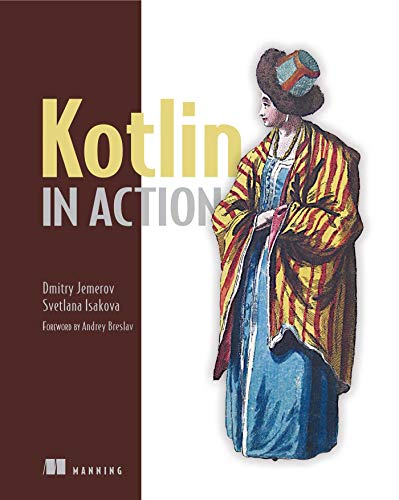8 JVM Books That Separate Experts from Amateurs
Recommended by Chris Seaton, Josh Long, and other JVM authorities for deep technical mastery

What if mastering the JVM wasn’t just about writing code, but about truly understanding the engine behind countless applications? The JVM continues to evolve, powering everything from enterprise systems to mobile apps. As demands grow, so does the need for developers to grasp its complexities and unlock peak performance.
Veterans like Chris Seaton, founder of TruffleRuby, have praised works such as Supercharge Your Applications with GraalVM for revealing the JVM’s untapped potential, especially in polyglot and containerized environments. Meanwhile, Josh Long, Spring Developer Advocate at Pivotal, credits Programming Kotlin for deepening his command of JVM-based languages and asynchronous paradigms.
While these expert-curated books provide proven frameworks, readers seeking content tailored to their specific experience, projects, and learning goals might consider creating a personalized JVM book that builds on these insights with a focus on their unique context.
by Laurentiu Spilca··You?
by Laurentiu Spilca··You?
Drawing from over a decade of hands-on Java and Spring development, Laurentiu Spilca crafted this book to equip you with the skills to dissect and resolve complex JVM application issues. You’ll learn to interpret heap dumps for memory leaks, analyze thread dumps to diagnose deadlocks, and use profiling tools to pinpoint CPU bottlenecks. The book’s structured chapters, like "Investigating Locks in Multithreaded Architectures" and "Finding Memory-Related Issues," provide concrete methods to navigate legacy code and microservices systems. If you want a deeper understanding of JVM internals that goes beyond simple debugging, this book offers focused techniques tailored for intermediate Java developers.
Recommended by Chris Seaton
Ph.D. in Ruby, Founder of TruffleRuby
“If you're using Java, JavaScript, Node, Python, or Ruby in a high-performance environment it's worth reading this book to find out what GraalVM is making possible and how. If you're using multiple languages in a polyglot system it's worth reading it to discover how they can be combined. And if you're using Java in a constrained environment such as in containers it's worth reading it to understand what native images enable.” (from Amazon)
by A B Vijay Kumar··You?
When A B Vijay Kumar explores GraalVM, he taps into decades of IBM engineering expertise to reveal how you can push your JVM applications beyond conventional limits. You learn to leverage GraalVM's architecture to compile faster native images, optimize runtime performance, and build polyglot applications spanning Java, JavaScript, Python, and more. The book provides hands-on experiments with tools like the Truffle framework and practical examples of microservices using Quarkus and Micronaut, ideal if you want to enhance cloud-native or containerized apps. If you’re comfortable with JVM development and eager to improve throughput and interoperability, this book offers concrete insights without fluff, though it assumes some programming background.
This tailored book explores the intricate workings of the Java Virtual Machine (JVM) with a focus that matches your background and learning goals. It examines key JVM internals such as memory management, garbage collection, and just-in-time compilation, revealing how these components influence application performance. By weaving together expert knowledge with your specific interests, it offers a personalized pathway through complex topics like thread synchronization, class loading, and performance tuning. This approach sharpens your understanding without overwhelming you with irrelevant details, making mastering JVM internals both accessible and engaging.
by Dean Wampler··You?
Dean Wampler challenges the conventional wisdom that Scala is just another JVM language by demonstrating its unique blend of functional programming and object-oriented design. You learn to harness Scala's powerful type system, mixin composition with traits, and pattern matching to build scalable, data-centric applications. The book's clear code examples walk you through leveraging tools like Spark and Akka for distributed computing, making it especially useful if you want to deepen your understanding of scalable JVM applications. Whether you're a beginner or advanced developer, you gain practical insights into both Scala's philosophy and its evolving features, notably the updates in Scala 3.0.
by Dmitry Jemerov, Svetlana Isakova··You?
by Dmitry Jemerov, Svetlana Isakova··You?
Dmitry Jemerov’s long tenure at JetBrains and his role as a founding Kotlin developer lend this book an unmatched authority in navigating Kotlin’s nuances. Alongside Svetlana Isakova, he guides you through the language’s syntax, type system, and interoperability with Java, making it a sharp tool for experienced Java developers transitioning to Kotlin. The book doesn’t shy away from complex topics like building domain-specific languages or leveraging Kotlin’s functional programming features on the JVM, providing in-depth examples that clarify these advanced concepts. If you’re looking to deepen your understanding of Kotlin for JVM or Android development, this book offers a focused, technically rich path without unnecessary distractions.
by Scott Oaks··You?
When Scott Oaks, an Oracle architect deeply involved with Java performance, wrote this book, he aimed to bridge the gap between coding and JVM internals. You’ll gain nuanced insights into how Java 8 and 11 actually behave under the hood, including garbage collection mechanics and ahead-of-time compilation. Chapters detail tooling and tuning strategies that help you identify bottlenecks and improve database interaction speeds. This is a solid pick if you want to understand how JVM impacts your code’s runtime and performance beyond surface-level optimizations.
by TailoredRead AI·
by TailoredRead AI·
This tailored book offers a focused exploration of enhancing JVM application speed and stability through a step-by-step approach. It examines the core principles of JVM performance, such as memory management, garbage collection tuning, and concurrency optimization, all matched to your specific background and goals. By concentrating on quick, effective actions, it reveals how to improve JVM efficiency while maintaining application reliability. This personalized guide addresses your unique challenges and interests, blending deep technical insights with practical guidance that fits your experience level, ensuring a tailored learning experience that maximizes your JVM application's potential.
by Venkat Subramaniam··You?
Venkat Subramaniam’s extensive experience as an educator and author shines through in this detailed exploration of Kotlin for JVM and Android platforms. You’ll grasp how to intermix imperative, functional, and object-oriented programming styles effectively, enhancing your ability to write concise, expressive, and efficient code. The book guides you through crafting type-safe applications, building domain-specific languages, and mastering asynchronous programming with coroutines, all supported by practical examples and exercises. If you’re looking to deepen your Kotlin skills for server-side or Android development, this book offers clear insights without unnecessary complexity, making it suitable for developers eager to write maintainable and performant applications.
by Benjamin J Evans, James Gough, Chris Newland··You?
by Benjamin J Evans, James Gough, Chris Newland··You?
What started as Ben Evans' journey through the intense performance demands of Google's IPO evolved into this book, offering you a clear-eyed view of tuning Java applications without relying on guesswork. You learn to apply a scientific, repeatable approach to JVM performance, focusing on real metrics and cloud-native environments rather than folklore. The book dives into practical issues like packaging, deployment, observability, and concurrency, giving you tools to understand how Java interacts with modern hardware and cloud stacks. If you're an intermediate to advanced Java developer struggling with performance puzzles in complex systems, this book offers a grounded framework rather than quick fixes.
by Marcin Moskała·You?
by Marcin Moskała·You?
What started as a deep dive into Kotlin coroutines by Marcin Moskała became an essential guide for JVM developers seeking to master modern asynchronous programming. Moskała, with his extensive experience in Kotlin development, offers you a thorough exploration of coroutines, covering both their core language features and the kotlinx.coroutines library. You'll gain concrete skills in managing concurrency and multithreading efficiently, especially relevant for Android and backend applications. For anyone working with JVM languages who wants to harness Kotlin's cutting-edge capabilities, this book offers detailed explanations and practical insights without unnecessary fluff.
Get Your Personal JVM Strategy in 10 Minutes ✨
Stop guessing. Get JVM advice tailored to your skills and goals without reading dozens of books.
Trusted by JVM developers and advocates worldwide
Conclusion
The JVM ecosystem is vast, but these eight books reveal clear themes: understanding JVM internals for troubleshooting, harnessing modern JVM languages like Kotlin and Scala, and optimizing performance with practical strategies. If you’re tackling performance bottlenecks, start with Java Performance and Optimizing Java for hands-on tuning advice. For language mastery, pair Kotlin in Action with Programming Scala to broaden your JVM toolkit.
For rapid modernization, Supercharge Your Applications with GraalVM is indispensable. Alternatively, you can create a personalized JVM book to bridge the gap between general principles and your specific situation. These books can help you accelerate your learning journey and unlock the JVM’s full potential.
Frequently Asked Questions
I'm overwhelmed by choice – which book should I start with?
Begin with Troubleshooting Java if you're focused on debugging JVM apps or Kotlin in Action if you're transitioning from Java to Kotlin. These provide solid foundations before diving into advanced topics.
Are these books too advanced for someone new to JVM?
Most assume some JVM familiarity but offer clear explanations. Beginners can benefit from Troubleshooting Java and Programming Kotlin as approachable entry points.
What's the best order to read these books?
Start with JVM fundamentals like Troubleshooting Java, then explore language-focused books such as Kotlin in Action and Programming Scala. Follow up with performance titles like Java Performance.
Do these books assume I already have experience in JVM?
Yes, they generally expect basic JVM knowledge. However, their practical focus supports gradual learning through real-world examples and clear guidance.
Which book gives the most actionable advice I can use right away?
Java Performance and Optimizing Java offer hands-on tuning techniques and profiling guidance you can apply directly to improve your applications.
Can personalized JVM books complement these expert titles?
Yes! While these books deliver expert insights, personalized JVM books tailor knowledge to your specific experience, goals, and projects, bridging theory and practice seamlessly. Explore more here.
📚 Love this book list?
Help fellow book lovers discover great books, share this curated list with others!
Related Articles You May Like
Explore more curated book recommendations







